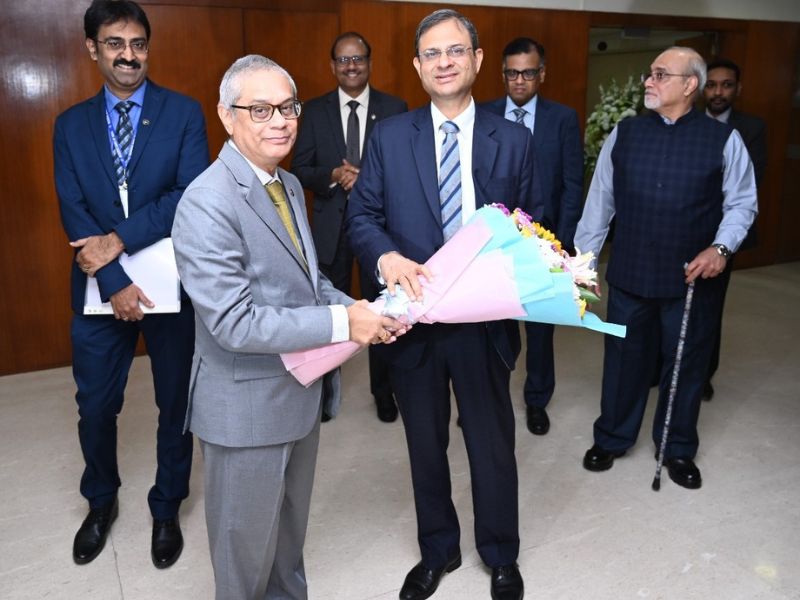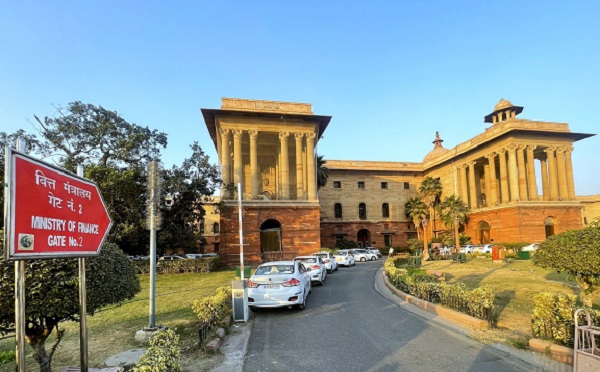.png)

Kalyan Ram, a financial journalist, co-founded Cogencis and now leads BasisPoint Insight.
February 6, 2025 at 8:15 AM IST
Dear Governor,
Open letters from columnists aren’t usually the best way to comment on newsmakers. They often come with a few flaws:
The writer tends to assume an outsized role, dishing out unsolicited advice that may not be needed. The tone can imply a seat at the table that the writer clearly doesn’t have. Plus, these letters are generally written more for public consumption than for the person being addressed, which makes such letters feel a bit disingenuous. Honestly, they can also be a lazy storytelling shortcut.
Guilty of all that, I still ask for your indulgence as I make a plea.
Since you arrived in Mumbai on December 11, you’ve probably been on quite the learning curve. You’ve likely heard that New Delhi and the North Block operate very differently from Mumbai and Mint Street. No doubt, your illustrious predecessors and other esteemed central bank chiefs will shape your approach, and maybe you even aspire to adopt some of their defining traits as you lead the Reserve Bank of India.
Your experience in public policy formulation will, of course, continue at the RBI. But policymaking here isn’t quite the same as it is in government. At the central bank, your job is to maintain the trust of all kinds of people—the public, savers, investors, especially foreign ones betting on India’s growth story. If that trust falters, the consequences can be pretty severe, showing up as exchange rate swings, capital outflows, and inflationary pressures. Credibility isn’t a one-and-done thing; one has to earn it every single day.
When you were in government, you were part of the machinery—a cog in the wheel—drafting policies, answering questions and defending policies for both the government and politicians. Now, you are the whole wheel. The buck stops with you. You carry the weight of the institution and the gravity of its responsibilities.
The leeway you may have enjoyed while at the North Block may not be available any more.
Your colleague until just six weeks ago, Tuhin Kanta Pandey, claimed over the weekend that the government’s decision to offer tax sops in the Budget instead of increasing revenue expenditure was meant to help the RBI lower interest rates. He argued that this approach isn’t inflationary.
The markets might let ministers and secretaries get away with such assertions because, well, that’s kind of expected. But they won’t cut you the same slack. Trying to boost disposable income to spur consumption carries its own inflationary risks, and the markets will expect you to tackle these complexities with intellectual honesty, not easy soundbites.
A governor's actions matter, sure, but their words can be just as powerful.
You’ve got a whole toolkit to manage your core mandates: keeping prices stable, safeguarding financial stability, and ensuring macroeconomic stability. But perhaps the most critical job you have is managing expectations—whether it’s about inflation, growth, or market sentiment, because expectations often become self-fulfilling. And at the heart of expectation management lies communication. Your actions matter, sure, but your words can be just as powerful, if not more.
The RBI operates through intermediaries—banks, markets, and regulated entities. Its communication mainly flows to and through these channels.
Past governors had different styles: Dr C. Rangarajan and Dr Y.V. Reddy crafted meticulous speeches and rarely deviated from that; Dr Bimal Jalan spoke more freely but relied on prepared texts for serious messages; Dr D. Subbarao preferred well-prepared speeches; Dr Raghuram Rajan enjoyed going off-script, even touching on political topics; Dr Urjit Patel was notably reticent; and Mr Shaktikanta Das spoke directly to the public, using metaphors to make complex issues relatable.
You’ve probably been briefed on these styles as you settle into your own rhythm.
As you gear up to present the February Monetary Policy Committee deliberations, here are a few thoughts:
Your primary audience is the market. Investors, both domestic and foreign, effectively vote on your performance with their money. Media conferences aren’t just formalities; they are your chance to explain the RBI’s thinking, intentions, and expected outcomes. Encourage thoughtful questions from the press. Don’t treat these sessions as rituals you just have to get through. Respond with care, remembering that your real audience is far beyond the press room—it’s the public, domestic and global investors, and policymakers around the world.
Transparency about the analytical frameworks behind your decisions is key. You don’t need to reveal everything, but sharing the thought process that guides policy helps build credibility. Allocate ample time for press conferences. Structure the Q&A effectively: start with all MPC-related questions, allow for follow-ups to dig deeper, and then move on to other topics. Thoughtful responses will naturally inspire better questions.
Attempts to reach the citizenry are laudable and the press would do that for you.
Questions around the framework should not be lost in the attempt to send a message to the broader audience. The keener watchers of the policy will look to parse through the intellectual detail from the responses you give at the press conferences.
Do not pre-decide to kill market volatility. Volatility isn’t always a sign of instability or of a market failure—it’s often a reflection of new information being processed.
Your role is serious, and the seriousness speaks for itself. You don’t need metaphors, and clever remarks don’t really convey the depth of a central banker’s thinking. Focus on expanding, elaborating, and genuinely engaging with the questions at hand. “A no comment” is a valid answer when press tries to be cute and tries to bind you into saying something forward looking.
And the markets also communicate with you.
Governor, do not pre-decide to kill market volatility. There is information in the market play. Price movements are not always manipulations or one-sided bets. Industry learns to price risks better, and so do central banks. The communication here is two-way. Listen to what is coming in instead of always just relaying the pre-set RBI word. Volatility isn’t always a sign of instability or of a market failure—it’s often a reflection of new information being processed.
The recent developments in the currency market testify to that.
The heart of central bank communication is addressing real economic issues with nuance and intellectual depth. Don’t get defensive. The RBI’s role is to offer insights that the market might miss.
Be staid or even boring if you must, Governor. The institution might need you to be.




